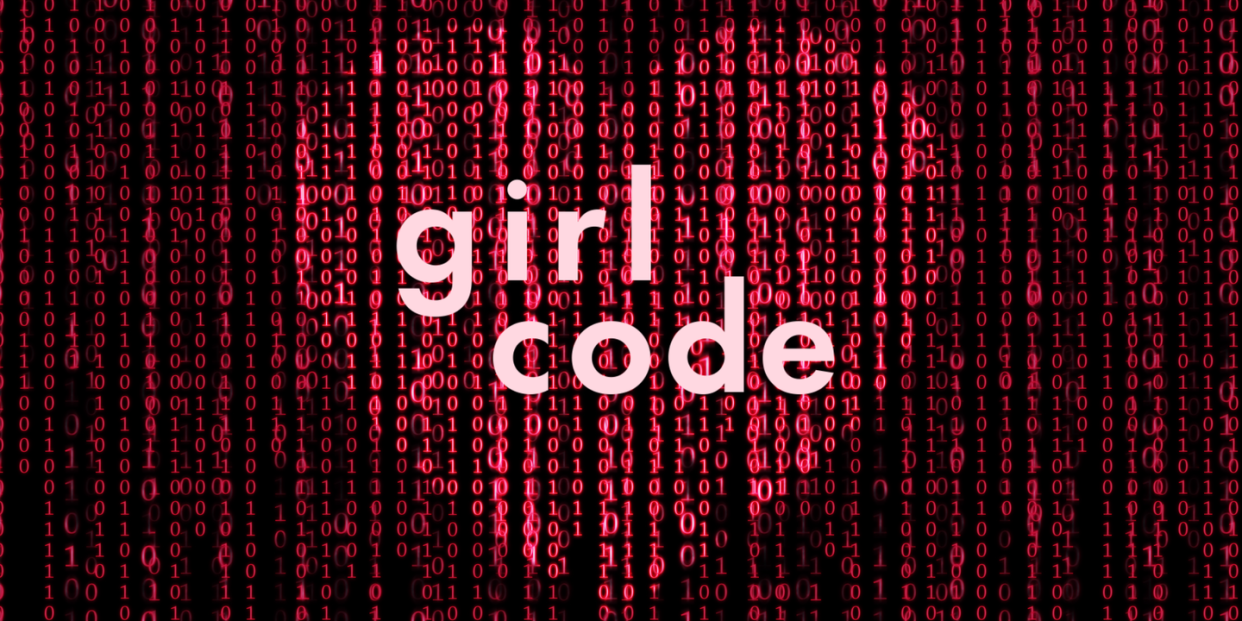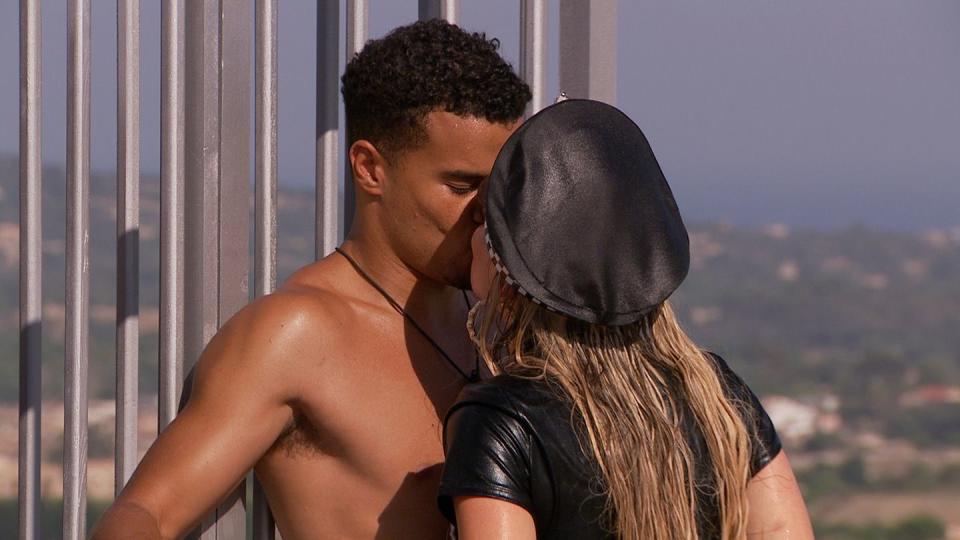Is it time to do away with 'girl code’?

- Oops!Something went wrong.Please try again later.
“I’m really sorry, but I think I fancy Henry*”, Jess* tells me over the phone one day, after I’d spent weeks gushing about him to her. My crush on him made me feel like we had an undoubtable romantic connection. What I didn’t expect, however, was my best friend calling me to say she liked him too and that she was going to pursue things with him if the opportunity came up. Stunned, I said, 'okay,' and hung up the phone.
It felt silly to be angry at Jess for telling me the truth, especially when this guy and I had established absolutely nothing about our relationship, not even a quick snog on a night out to grip onto. But because I had spoken about my attraction to him first, an irrational part of my brain informed me that I had “dibs on him” and therefore some form of “girl code” was broken.
The fundamentals of girl code
From a young age, women are fed messages that unwritten rules exist at the foundation of female friendships. Such rules, otherwise known as 'girl code', generally tell us that our loyalties to other women must come before everything else. For example, dating a friend’s ex or crush is out of the question. Or if you saw someone’s boyfriend cheating on a night out, you’d have to tell the girl, regardless of your relationship with the guy. Cue the classic: “Hey girl, I hope you don’t mind me messaging you...” Instagram DM.

We see these narratives play out in popular culture time and time again, starting from when Gretchen said that girl code was the "first rule of feminism" in Mean Girls to when actor Bella Thorne ended her friendship with ex-girlfriend Tana Mongeau for breaking “girl code” due to rumours that Tana dated Bella’s ex-boyfriend. More recently, we’ve witnessed the same term used against Love Island’s Chloe Burrows, for cracking on with Toby, the guy Kaz has been coupled up with since they entered the villa this year. But is it time to reevaluate our relationship with this gendered and problematic concept?
At the root of it, the fundamental idea of girl code – the one where you can’t even think of dating your friend’s ex or current romantic interest – reinforces the notion that people can have ownership over others. Not only does this remove people’s agency to decide who they do and don’t want to have relationships with, it’s also manipulative and controlling to cut contact between individuals purely because someone feels threatened. Aren’t healthy relationships those where all parties want to be together, regardless of outside influences?
As a concept, girl code is extremely heteronormative, as well as cis-normative, mostly assuming that all of the participants in the relationship drama are straight, monogamous and have binary experiences of gender. What happens if you were in a situation where a friend wants to date an ex and both are women, where does your loyalty lie then? Or what if the friend who you feel has wronged you doesn’t identify as a woman at all?

In the case of female friendships, girl code also seems to rest on the idea that women are in constant competition with each other and therefore need to give way, instead of talking things out, like the adults they are. Yes it might hurt if your friend wants to date your ex, especially if there are unresolved feelings, but perhaps your anger and frustration lie with the breakup, not your friend being honest with you. As journalist Moya Lothian-Mclean says, girl code can be “a fuzzy set of indeterminate rules that are used by women to police other women’s behaviour.”
What hurts us in complex situations like this is often a lack of communication, which should exist in good friendships. But this should have nothing to do with gender loyalty. The issue most people have is that instead of thinking “this friendship is breaking down because the communication has been bad and this person has acted in a way that hasn’t accounted for my feelings”, they’ll just think “oh she’s not a girl’s girl” and write their actions off as an act of internalised misogyny.
So how should we handle complex situations where exes, current partners and friendships are involved? “The girl code narrative leaves little space for friends to have open, honest, empathetic conversations about love. Every relationship is so nuanced and unique; the 'girl code' does not account for that,” says Floss Knight, psychotherapist and founder of UK Therapy Guide.
“In all relationships, the key is being open and honest and listening. Listen to what your friend says, listen to what their ex says, and listen to your emotions. Take your time and consider what you want and whether this relationship may be worth upsetting a friend for. Only you can make that judgement call.”
If you do need to talk to a friend about a potentially messy situation, Floss believes you should think about what it is that you’re asking for: Is it consent? Approval? Or just to let them know?
Floss also states that every situation is different. “It's worth mentioning this is very nuanced: starting a relationship with your closest friend's ex-fiancé who they are still in love with is a very different situation to, say, starting a relationship with your closest friend's ex-boyfriend who they harbour no feelings for,” she says.
Luckily, in my situation, I was able to move away from the toxic girl code narrative and with enough emotional maturity, opted to take some space to process the issues at hand. I couldn’t see either Jess or Henry for a few weeks, especially when they eventually hooked up. But after having gone through all five stages of grief around a misplaced attraction, all three of us were back to normal in no time because the honest communication around everything made our friendships even stronger.
I realised that most of my hurt came from feelings of rejection I’ve internalised over the years and what I saw as mixed messages from Henry. It was nothing to do with my best mate actually cracking on with my crush. If I bought into the idea of Jess breaking girl code, our friendship may not have survived and I would have lost two really important people in my life in one go.
*Names have been changed
You Might Also Like

